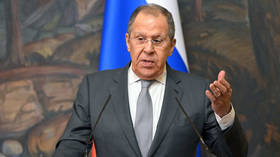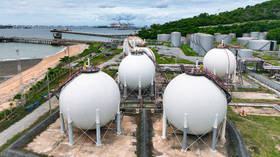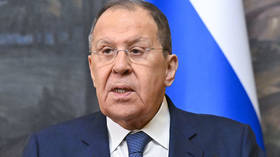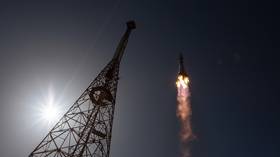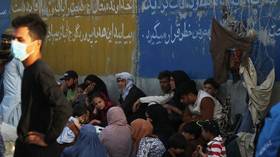Astronauts find ANOTHER crack on aging International Space Station – this time in original 1998-launched Russian module 'Zarya'
Astronauts on the International Space Station have found a crack on the planet's only inhabited satellite, just five months after they fixed another leakage back in March this year, a Russian space rocket designer has revealed.
Speaking to RIA Novosti, Vladimir Solovyov, the chief designer of the 'Energia' Rocket and Space Corporation, revealed a crack was found in the station's oldest segment.
"Several non-penetrating cracks were found in the Zarya module," he explained.
The Zarya is the first module of the ISS to have been launched, having been sent up by the Russian space agency in 1998. Zarya – which means 'dawn' in Russian – provided the initial electrical power and propulsion to the station, and guided the ISS through its early stage.
Also on rt.com Moscow to QUIT International Space Station in 2025 unless Washington lifts restrictive sanctions, says Russian space bossAccording to Solovyov, the discovery of the new crack has sparked fears that new ones will begin to spread throughout the module, as they did in another Russian-built segment. In September 2019, a small air leak was discovered on the ISS, which was discovered over a year later to be coming from a chamber of the Zvezda module. It was fixed in March this year.
Last month, another module arrived at the ISS. Named 'Nauka,' it will be used for experiments and can also generate oxygen for six people and recycle water from urine. It is the fifth Russian segment currently at the station, after Zarya, Zvezda, Poisk and Rassvet.
Earlier this year, Roscosmos chief Dmitry Rogozin revealed that Moscow would withdraw from the ISS project in 2025 and create its own space station if the US continued to impose sanctions against the Russian space sector. President Vladimir Putin has already signed off on a project for a Russian-only orbital station, consisting of three to seven modules.
Like this story? Share it with a friend!




